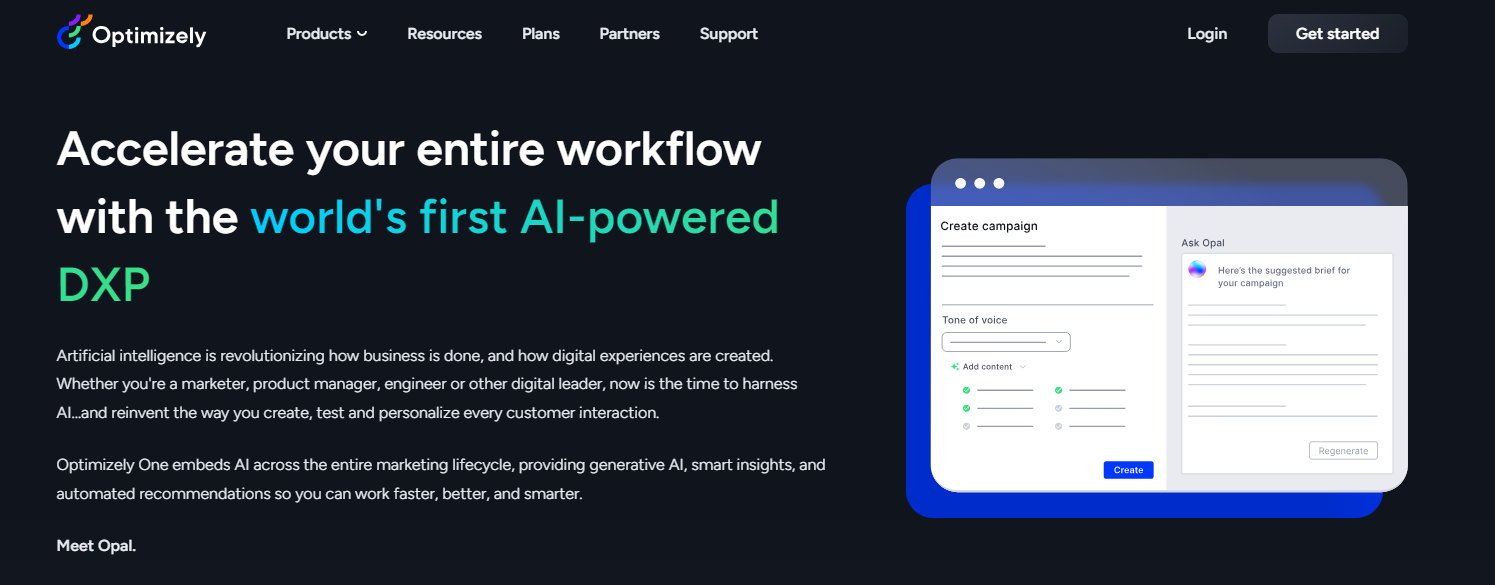AI for Ecommerce: Tools, Use Cases, and Considerations

Artificial Intelligence (AI) has emerged as a major force, reshaping how businesses operate and engage with customers. The plethora of AI-powered tools and services offers many opportunities for ecommerce stores seeking to optimize operations, personalize user experiences, and boost sales.
In this article, we’ll give an overview of ways to incorporate AI into your ecommerce store. Then we’ll provide a few tools you can try out. Then we’ll discuss some considerations and trends you should pay attention to when it comes to AI.
10 Specific Use-Cases for AI in Ecommerce
Starting off with the fun part, where you get to see actionable use cases for AI. Here are specific scenarios where AI can be employed:
1. Personalized Recommendations
As you’ll see in the tool section with the prevalence of AI-powered personalization engines, this is a no-brainer. No more needing to manually create recommendations or rely on a less-sophisticated algorithm. These suggestions appear on product pages, in emails, or during checkout, prompting customers with items they’re likely to purchase based on their browsing or purchase history.
2. Customer Support and Chatbots
AI-powered chatbots provide instant, round-the-clock customer support, addressing queries, assisting in product selection, and guiding users through the purchase process. They handle routine inquiries, offer order status updates, and provide a personalized experience by simulating human-like interactions. This means more time for your human agents to handle the really tricky questions that need a personal touch.
3. Predictive Analytics for Inventory Management
AI-driven predictive analytics forecast future demand and trends based on historical data, enabling ecommerce businesses to optimize inventory levels. By predicting which products will sell and when, they prevent overstocking or stockouts, thereby reducing storage costs and improving order fulfillment.
4. Dynamic Pricing and Offers
AI algorithms analyze market conditions, competitor pricing, and customer behavior to dynamically adjust prices and offer personalized discounts or promotions. This strategy maximizes revenue by optimizing prices in real-time to match demand. Something companies like Uber have been doing for years, and retail companies like Wendy’s are trying, you can now test out on your own store.
5. Visual Search and Image Recognition
AI-powered visual search allows customers to find products by uploading images or using photos they’ve taken. The technology recognizes patterns, colors, and shapes, presenting similar products from the ecommerce catalog. This simplifies the search process and improves user experience.
6. Customer Segmentation and Marketing Personalization
AI can segment customers based on their behavior, preferences, and purchase history, allowing ecommerce marketers to create highly targeted and personalized marketing campaigns. This personalization spans email marketing, retargeting ads, and product recommendations. This means more relevant ads and messaging, and less chance of annoying your visitors.
7. Fraud Detection and Prevention
AI algorithms can detect anomalous behavior patterns, flagging potential fraudulent transactions before they occur. By analyzing vast amounts of data in real-time, AI helps mitigate risks associated with fraudulent activities, safeguarding both businesses and customers. These decisions can sometimes be made in seconds or milliseconds, versus the longer time it would take a human agent. This can help reduce friction in the checkout process.
8. Voice Commerce and Search Optimization
With the rise of voice assistants, AI enables ecommerce platforms to optimize for voice search. Voice can aid users requiring accessibility tools to navigate sites. And as more and more people become accustomed to using voice to search across the web, they’ll come to expect this. The trend is still quite nascent, as you’ll see further down.
9. Enhanced Product Descriptions and Content Generation
AI-generated content and product descriptions utilize natural language generation algorithms to create compelling and unique descriptions for products. This automated process assists in creating SEO-friendly, clear, relevant content at scale. This can also mean better translations of content, allowing your store to sell across different languages.
10. Customer Behavior Prediction and Retention
AI analyzes customer behavior patterns to predict potential churn or identify high-value customers. This allows businesses to proactively engage with at-risk customers or offer loyalty rewards to retain valuable ones.
7 AI Apps for Ecommerce
When it comes to actually implementing AI for your ecommerce store, it can be challenging to know where to start. Below are some suggestions for AI apps we find most useful. This is by no means a comprehensive list, but is intended to give you an idea of what tools are out there.
Optimizely
Optimizely is a platform that focuses mainly on A/B testing. However, they now offer an AI tool to help with digital experiences. As they explain it “Optimizely One is the world’s only DXP with AI fully-embedded across its entire suite. From planning to analysis, Opal is ever-present, helping to inform and accelerate every phase of the marketing lifecycle.”
Dynamic Yield
This tool (from Mastercard) leverages AI to offer personalized recommendations, optimize content, and orchestrate customer journeys across various touchpoints, thereby enhancing engagement and conversions. “Personalize using predictive and deep learning models on web, in emails, and via mobile apps”.
Chatfuel
Chatfuel is specifically designed for creating AI-powered chatbots on platforms like Facebook Messenger and WhatsApp. It can help your ecommerce business automate customer service, sales, and support processes.
LimeSpot
This is an AI-driven personalization platform that tailors product recommendations, upsells, and cross-sells across ecommerce websites, enhancing the shopping experience.
Recombee
An AI-powered recommendation engine that helps ecommerce stores deliver personalized product recommendations to users based on their browsing and purchase history.
Yotpo
Yotpo uses AI to collect and analyze customer reviews, photos, and Q&A data, helping ecommerce businesses generate social proof, insights, and user-generated content for marketing. “Yotpo’s AI engine extracts informative reviews from past buyers and presents review content in smart displays designed to engage and convert shoppers.”
Algolia
This AI-powered search function uses dynamic re-ranking and personalization to understand users. The tool can auto-generate category pages, building them instantly and populating the items that will most likely convert visitors.
Exploring the Impact
With so many opportunities to enhance your ecommerce store with AI tools and algorithms, you want to jump right in. But wait a second, step back and think through some of these considerations first:
Data Quality and Privacy
The reliability of AI applications hinges upon the quality of data. High-quality, clean data is imperative for accurate predictions and delivering personalized experiences. Simultaneously, ensuring stringent data privacy measures is paramount to building and maintaining customer trust.
Customization and Adaptability
Adapting AI applications to cater to specific business needs and continually refining them based on evolving consumer trends and behaviors is essential for sustained effectiveness and relevance.
Cost and Implementation
While AI-powered solutions promise substantial benefits, the initial investment, both in terms of cost, and implementation time, can be substantial. In addition, consider the ongoing need to tweak and manage the tool. Businesses must weigh these costs against the potential long term gains and ROI.
Future Trends and Considerations
As technology evolves, the role of AI in ecommerce is likely to expand. Here are some trends you can look out for:
Embracing the Rise of Virtual Assistants
The proliferation of virtual assistants like Siri and Alexa underscores the significance of voice commerce. Ecommerce professionals must adapt to optimize for voice search and develop user-friendly voice interfaces to tap into this growing market.
The Journey to Hyper-Personalization
AI will continue to refine its capabilities in understanding and predicting consumer preferences. This relentless pursuit of enhanced personalization aims to provide hyper-tailored experiences that cater to individual needs, fostering stronger customer connections.
Navigating the Ethical Terrain
As AI becomes increasingly integrated into ecommerce, ethical considerations surrounding bias, transparency, and accountability in algorithms will be critical for building consumer trust. How is the AI really making these decisions? Addressing these ethical aspects will be crucial for long term sustainability and brand reputation.
Conclusion
The integration of AI-powered tools and services has created a shift in ecommerce, empowering businesses with data-driven insights, personalized experiences, and streamlined operations. While these innovations offer immense potential, understanding their intricacies, ensuring data quality, and addressing ethical considerations are pivotal for harnessing AI’s full benefits.
As technology advances and consumer expectations evolve, leveraging AI’s capabilities intelligently and ethically will remain key to achieving and maintaining a competitive edge in the ecommerce world.


